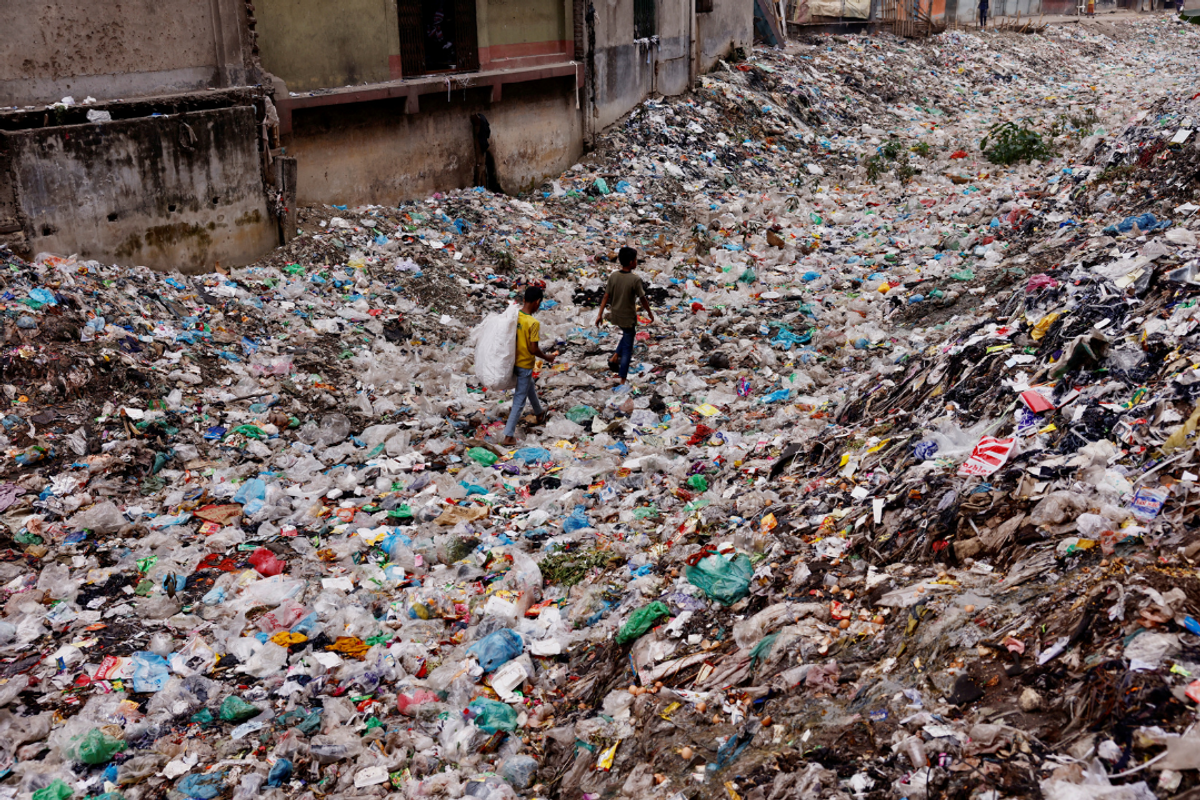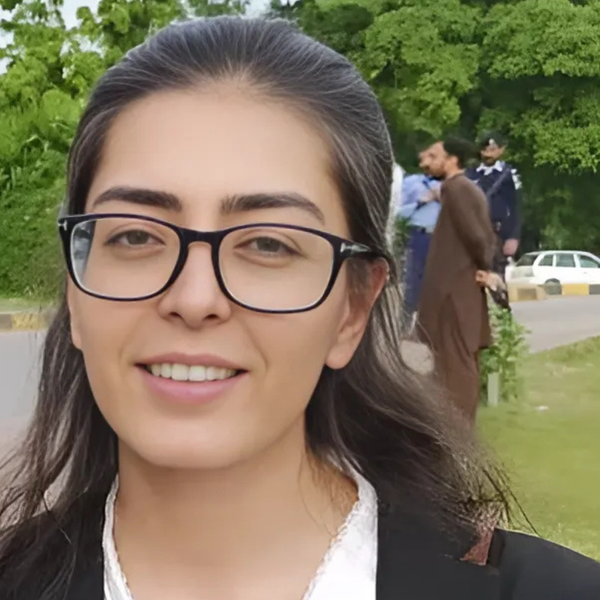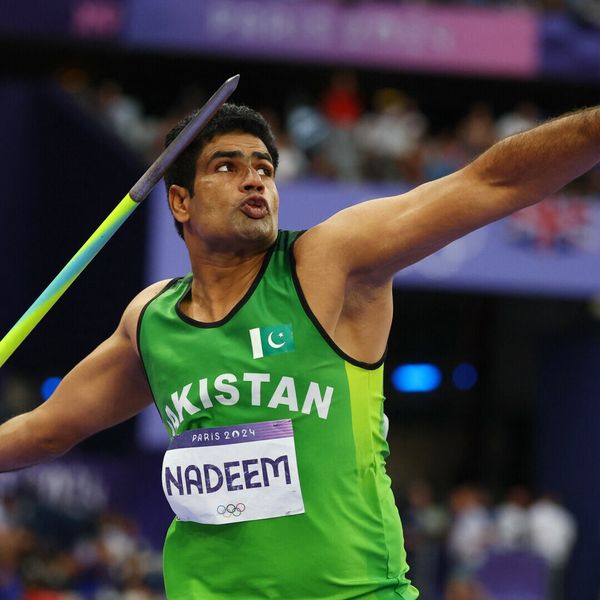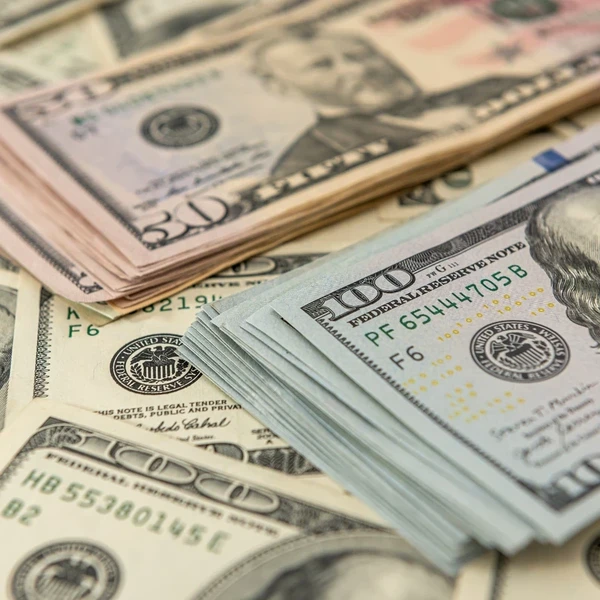Pakistan calls for ‘plastic tax’ on rich nations
In its statement to INC-5.2, the country says the global south is bearing a disproportionate burden of excessive plastic consumption in developed countries
Business Desk
The Business Desk tracks economic trends, market movements, and business developments, offering analysis of both local and global financial news.

Children walk over a polluted area as they collect plastic materials in Dhaka, Bangladesh
Reuters
Pakistan has called for a new tax on developed nations which consume disproportionately more plastic than poorer countries as global leaders meet in Geneva to mull ways for tackling plastic pollution.
In a statement at the fifth session of the Intergovernmental Negotiating Committee on Plastic Pollution (INC-5.2), Pakistan said the consumption of plastic per capita in richer nations exceeds 100 kilograms per year. In comparison, the consumption in developing nations like Pakistan is only seven kilograms per year. In India and Bangladesh, the figures stand at eight and six kilograms, respectively.
Pakistan has proposed a proportional tax on all high-end consumer countries, where per capita plastic consumption exceeds 100 kilograms per year. This money should be pooled together into a dedicated ‘Plastic Fund’ for developing countries where plastic waste is a “significant crisis and a driver of inequality”, according to the statement.
“This fund should directly support the development of infrastructure, technology, and regulatory capacity in these countries, enabling them to manage their plastic waste challenges effectively and equitably,” the statement added.
This fund will ensure that the richer nations, primarily responsible for plastic pollution, also bear the financial responsibility for sustainable solutions.
Pakistan also proposed a global plastic credit market to be set up on the same lines as the carbon credit systems. The move will allow developing countries, which consume less plastic, to generate plastic credits by reducing waste and through dedicated efforts for recycling.
“These credits will then be available for purchase by high-end consumer countries, thus creating a revenue stream that rewards sustainable management and shifts the financial burden to where the demand originates,” Pakistan has proposed.
The statement said these measures are imperative as low-income countries such as Pakistan are receiving plastic waste from wealthier nations. “These imports are often categorized as recyclable waste, but in reality, much of it includes non-recyclable, contaminated, or low-value plastics that cannot be processed locally,” it added. “Without the appropriate infrastructure, this waste ends up in open dumps, rivers, or is burned, causing severe environmental degradation and public health risks.”
Talking to Nukta about the conference, Pakistan Minister for Climate Change Musadik Malik said, “Pakistan is leading the Global South in refusing to become the garbage bin of the world. The goal is to become the recycling capital of the world.”
Pakistan currently generates around 49.6 million tons of total waste annually, with plastic waste constituting approximately 2.7 million tons, or 4% of the total. Only 7.6% of this plastic is recycled, if that much, predominantly through an informal economy lacking regulation, safety, or technological support.
To address the situation, Pakistan has also proposed an ‘Extended Consumer Responsibility (ECR)’ framework under the global plastics treaty. This framework “repositions responsibility for plastic pollution from the shoulders of developing countries to those who consume the most”.
The global conference in Geneva has brought together delegations from more than 70 countries to finalize negotiations for a legally binding international treaty on plastic pollution. It aims to address the entire lifecycle of plastics—from production and design to disposal and recycling.










Comments
See what people are discussing